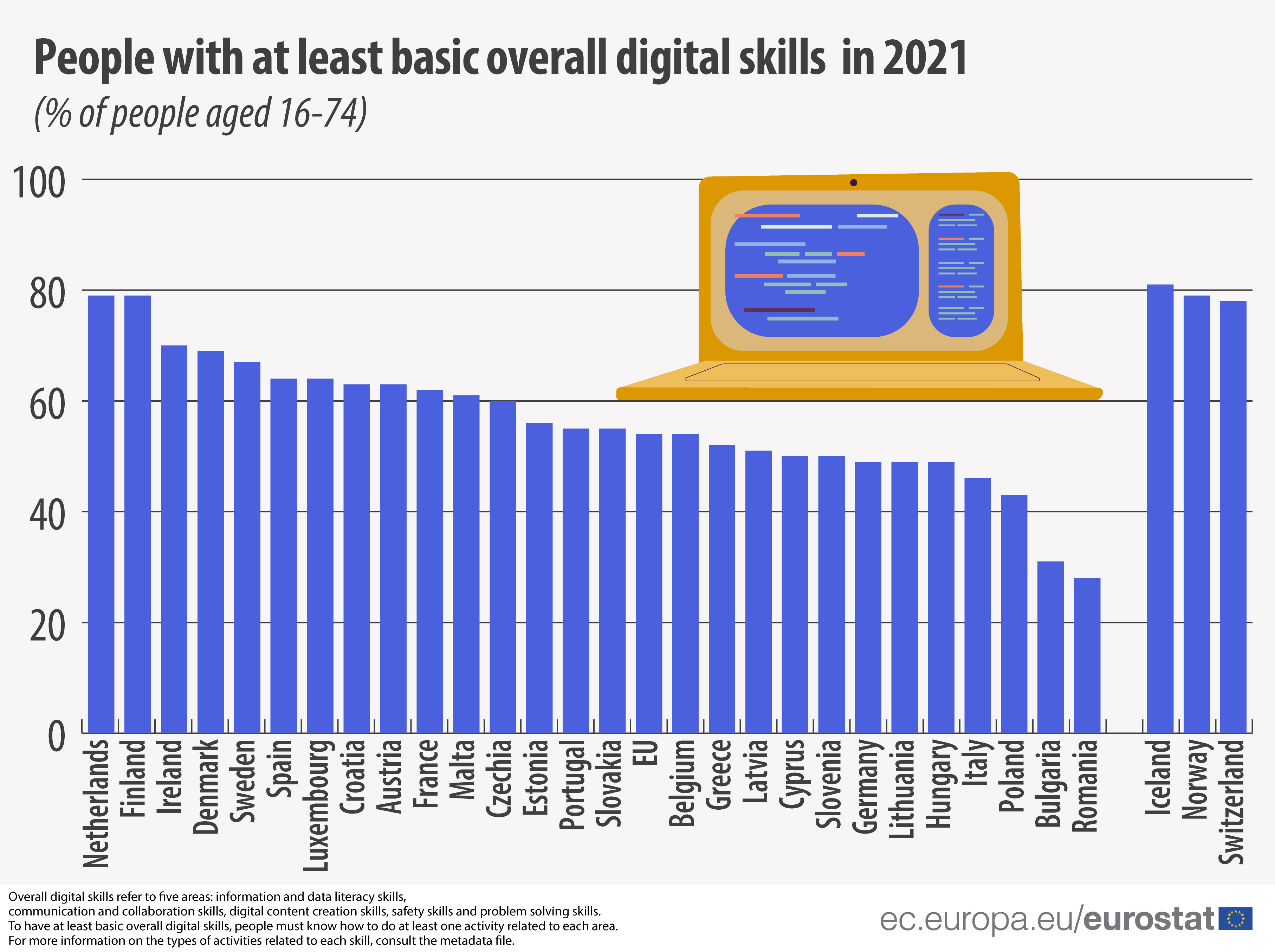- Over half of people in the European Union had at least basic digital skills in 2021, new data shows.
- The Netherlands, Finland and Ireland scored highest, says Eurostat.
- While Romania, Bulgaria and Poland had the lowest share.
- Digital inclusion that will help 1 billion people globally is the key aim of the EDISON Alliance, a World Economic Forum initiative.
Do you know how to read online news sites, send an instant message, use word processing software or manage access to your personal data?
These are some of the basic digital skills that the European Union has been measuring across its 27 member countries.
Of people aged between 16 and 74 in the EU in 2021, more than half (54%) have “at least basic overall digital skills,” says Eurostat, the statistical office of the EU.
This means they know how to do at least one activity related to each of the following five areas: information and data literacy skills, communication and collaboration skills, digital content creation skills, safety skills, and problem solving skills.
Advancing digital skills
At 79% each, the Netherlands and Finland score the highest on basic overall digital skills. Ireland is next, with 70%.
Romania, Bulgaria and Poland show the lowest share of basic overall digital skills, at 28%, 31% and 43% respectively.
Eurostat says digital skills are a key indicator in the European Commission’s Digital Decade initiative. This outlines the EU’s vision for digital transformation by 2030. Goals include at least 80% of EU citizens aged between 16 to 74 having at least basic digital skills by 2030.
What are basic digital skills?
Examples of data literacy skills include finding information online about goods or services or reading online newspapers, Eurostat explains.
Communication and collaboration skills include sending and receiving emails and using social media.
Digital content creation skills include using word processing or spreadsheet software and editing photos, video or audio files.
Safety skills relate to things like limiting access to profile or content on social media sites and changing internet browser settings.
Problem solving skills include selling online, internet banking and installing software or apps.
Digital inclusion vision
Helping everyone to take part affordably in the digital economy is also the vision of the EDISON Alliance. This is a World Economic Forum initiative launched in 2021 to accelerate digital inclusion.
The Alliance says 2.9 billion people (37% of the world) do not use the internet. By 2025, the EDISON Alliance hopes to improve 1 billion lives globally by accelerating digital solutions in health, finance and education that are affordable and accessible.
The Reskilling Revolution is another Forum initiative that hopes to provide one billion people with better education, skills and jobs by 2030.
Launched in 2020 with partners including the governments of Brazil, France and India, the project aims to help upskill and reskill workers for technology-driven change in the workplace.
Alongside technology skills like data and cloud computing, there’s also a growing need for interpersonal skills like creativity and collaboration, the Forum says – as well as specialized skills related to sales, education, human resources and other areas.
(Article attributed: WE Forum)











